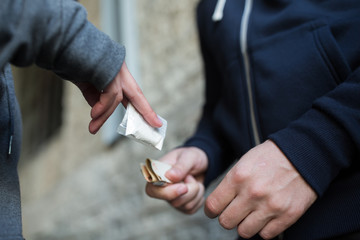If police officers in New Jersey arrest you for driving under the influence, it does not mean you don’t still have a fighting chance to beat the DUI case. In fact, DUI cases in New Jersey have a better chance of being thrown out in 2018 than a decade ago, according to recent statistics.
In 2008, 85 percent of people charged with DUI were found guilty. This conviction resulted in suspended licenses, exorbitant fines, and even jail time in some cases. However, since then the number of DUI cases that ended in conviction is actually down to 71 percent. Likewise, the number of DUI cases in New Jersey that were dismissed was up from 10 percent to 24 percent.
Reasons Why Judges Dismiss DUI Cases in New Jersey
There are several reasons why a judge could throw out a DUI case in court. These include:
- Police used Non-standardized Field Sobriety Tests
- Arresting officers did not follow arrest procedures correctly
- Mishandling of breathalyzer devices
To understand these reasons why the court may rule to dismiss DUI cases in New Jersey, we need to examine each.
What’s the Difference Between Standardized and Non-standardized Field Sobriety Tests?
Standardized Field Sobriety Tests are a battery of physical and cognitive tests established by the National Highway Traffic Safety Administration (NHTSA). These are federally-approved methods for police officers to evaluate drivers whom they suspect to be driving under the influence of alcohol or drugs. The NHTSA developed these tests decades ago, back when the legal limit of blood alcohol concentration was below 0.10 percent. Recently, however, as many as 16 states have lowered their legal blood alcohol content limits. Therefore, the accuracy of these tests has now come into question.
The designated Standardized Field Sobriety Tests are the Horizontal gaze nystagmus (HGN) test, the Walk and Turn test, and the One-legged Stand test. The NHTSA officials who developed these tests proved that they have objective factors. These factors make the tests quite reliable when evaluating intoxication. That means there are measurable results that can be assessed. Police must conduct Standardized Field Sobriety Tests according to specific regulations put in place by the NHTSA. If the arresting officer does not follow the established procedures or document the results correctly, the judge may dismiss the case.
Non-standardized Field Sobriety Tests include the Romberg Balance Test, the hand pat test, the finger-to-nose test, and tests requiring the suspect to recite the alphabet or count numbers backward. These tests are flawed for a few reasons. Perhaps most importantly, the tests are difficult for the average person to pass even when they are completely sober. The results of these Non-standardized Field Sobriety Tests often are too reliant on the arresting officer’s opinions and observations, rather than measurable outcomes. For this reason, the judge may believe them to be unreliable and ultimately rule to dismiss the case.
Police Must Follow DUI Arrest Procedures Appropriately
When police do not conduct DUI checkpoints according to the law, any arrests made during that time result in dismissal in court. Police must pre-plan and obtain approval from a supervisor for any sobriety checkpoints set up. They must also give public notice and set up adequate lighting and signage before conducting the traffic stop. If police neglect any of these regulations, the arrests made will be unlawful.
Another way to beat DUI cases in New Jersey is by proving that there was not probable cause or reason for suspicion for a police officer to pull the suspect over in the first place. Police must also have sufficient reason to conduct field sobriety tests, as well. If the officer had no supportable reason to stop a motorist and then subject him or her to a sobriety test, it would be grounds for dismissal of the case. The officer must also read the suspect the Miranda rights prior to arrest.
Alcotest Breathalyzer Mistakes Could Invalidate DUI Cases in New Jersey
There are stringent rules for law enforcement officers to follow when performing the Alcotest, otherwise known as the Breathalyzer test. First and foremost, the officer must have undergone training and certification to perform the Alcotest. Secondly, the officers must clean, calibrate, and test the device to make sure it is working properly. The officers performing the test must remove all electronic devices from the immediate area where the Alcotest will take place. When the test is in progress, officers must observe the suspect for 20 minutes. During this time, they must make sure that the suspect has not ingested anything, chewed gum, or vomited. If the officers interrupt the observation period, the results are invalid.
Get the Help You Need to Fight DUI Cases in New Jersey
Following a DUI arrest, you need the help of a DUI attorney who knows how to build a solid defense. Call the Law Offices of Douglas Herring, the Criminal Defense and DWI Defense attorney who fights DUI cases in New Jersey using the best legal strategies. Mr. Herring is a key member of the DUI Defense Lawyers Association, as well as the National College for DUI Defense. Call 609-256-4098 today for a free consultation.

